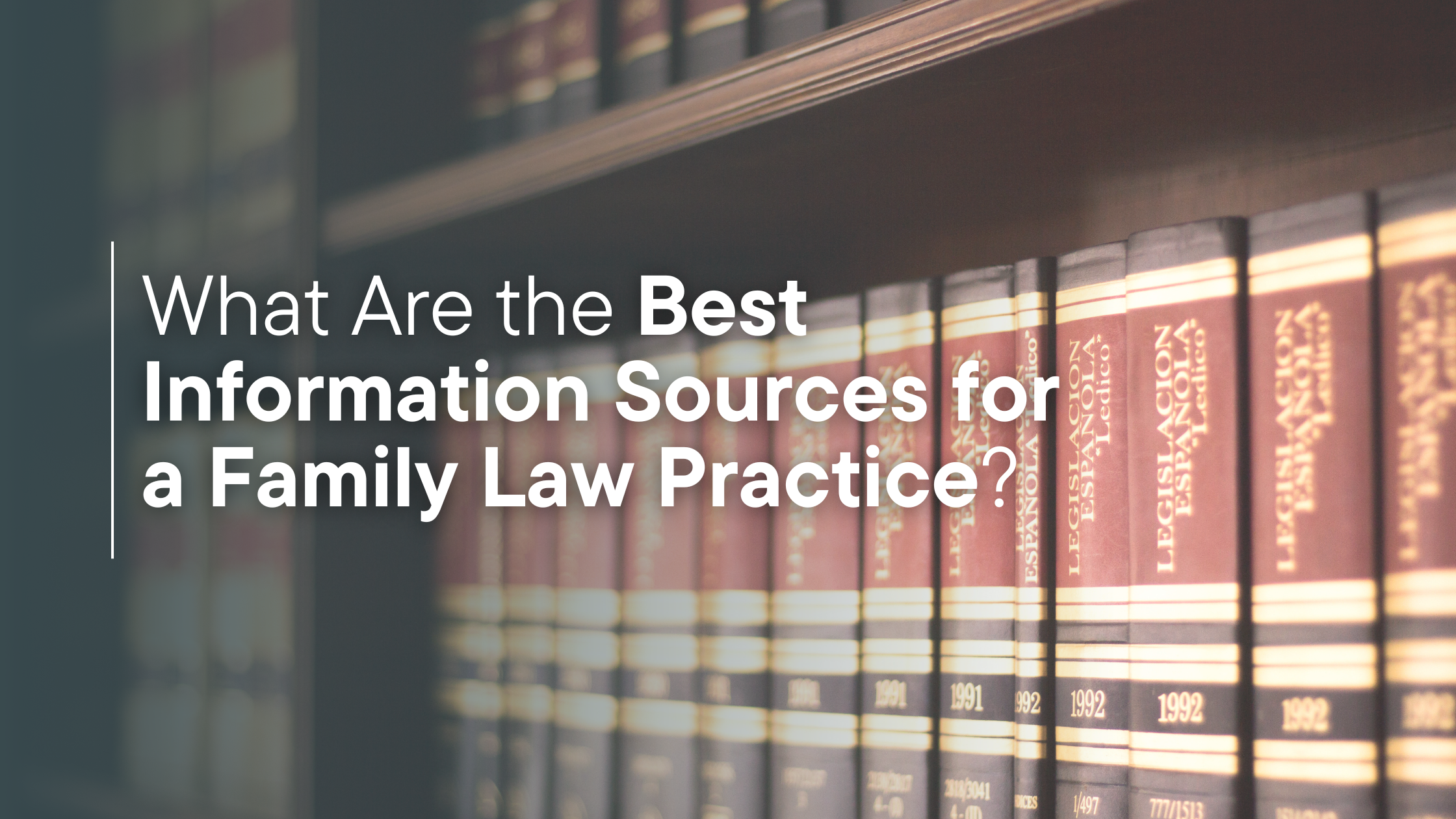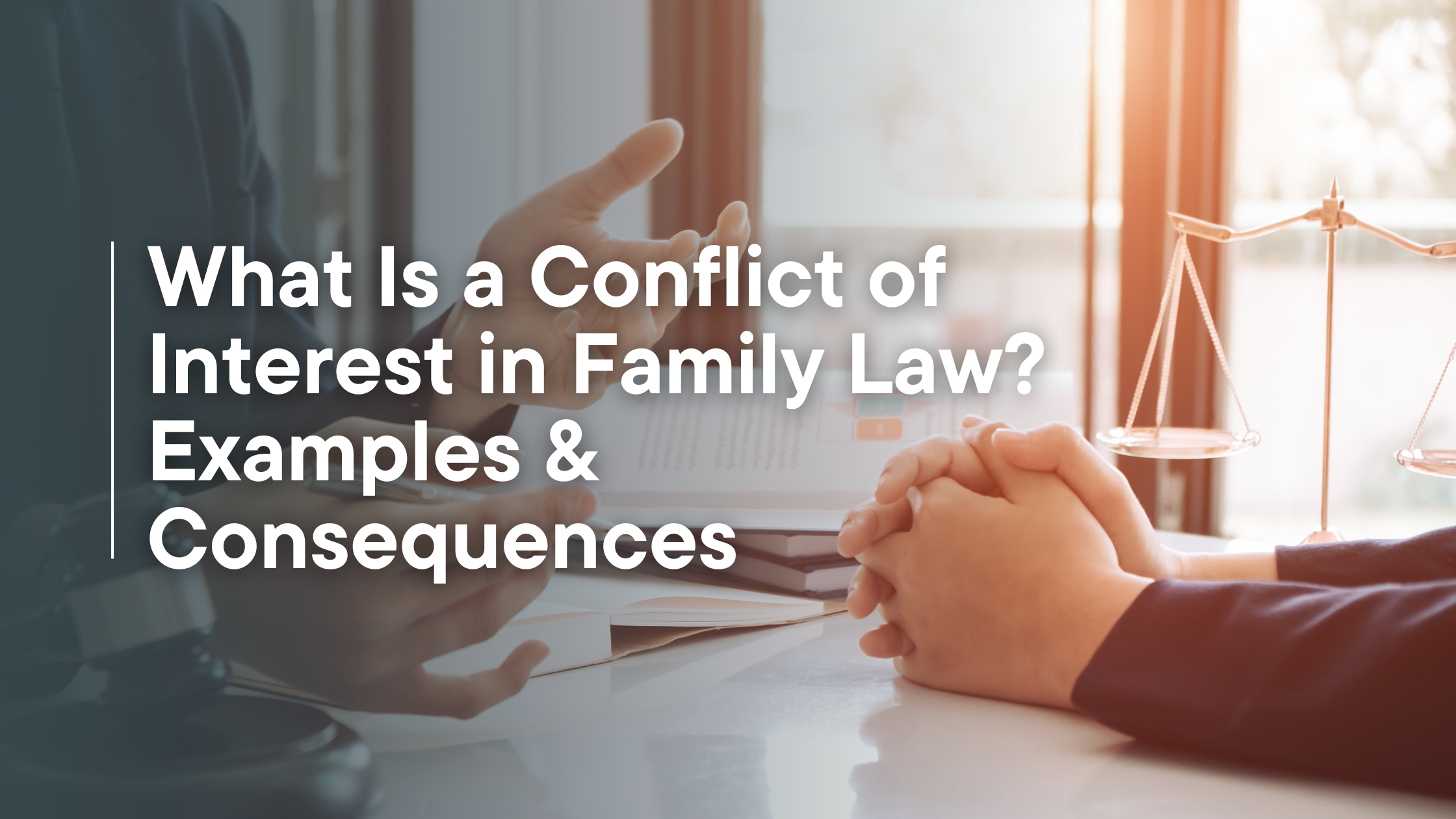Navigating the world of family law can be complex, and staying informed is crucial to providing the best possible legal representation for your clients. Whether you’re dealing with divorce, custody disputes, or prenuptial agreements, having access to reliable and up-to-date information can significantly impact the outcome of a case. In this blog, we’ll explore some of the most trusted sources that every family law practice should utilize to stay ahead of the curve.
1. Legal Databases and Case Law Repositories

When it comes to family law, having access to comprehensive legal databases is a must. These platforms provide the most up-to-date legal information, from case law to legal opinions.
- Westlaw and LexisNexis: These two platforms are cornerstones of legal research. With their expansive databases, you can access case law, legal analyses, and more. They allow family law attorneys to find precedent-setting cases, statutes, and regulations that may influence the direction of their cases.
- Bloomberg Law and PACER: These platforms are ideal for getting real-time updates on case filings, judgments, and trends within family law. PACER (Public Access to Court Electronic Records) is a particularly valuable tool for accessing court documents, including filings and orders, which can help you understand the nuances of a case before it goes to trial.
2. Government Websites and Legal Resources

Government websites are a treasure trove of legal resources, particularly for family law practitioners who need reliable and authoritative information.
- State and Federal Court Websites: Local and federal courts often provide access to recent rulings, case files, and local rules. These resources are invaluable when it comes to staying informed on new legal precedents that may affect your cases.
- U.S. Department of Health & Human Services (HHS) and Child Support Guidelines: Family law often intersects with regulations related to child custody, support, and adoption. The HHS website provides guidance on federal regulations and resources that will help ensure compliance with family law statutes related to child welfare.
3. Bar Associations and Professional Organizations

For family law attorneys, joining professional organizations and staying connected with local and national bar associations is essential.
- American Bar Association (ABA): The ABA’s Family Law section provides practitioners with a wealth of resources, including journals, publications, and networking opportunities with other professionals in the field. It’s an excellent source of continuing education and professional development.
- State-Specific Bar Associations: Each state has its own bar association that offers valuable resources, such as state-specific guidelines, continuing education programs, and updates on local family law trends. These organizations are essential for understanding jurisdictional nuances and keeping up with local rules and regulations.
4. Law Journals and Legal Publications

Staying informed through legal publications can help family law attorneys gain insights into new trends, case law, and expert opinions.
- Family Law Quarterly: This legal journal publishes articles, case analyses, and practical guidance on a wide range of family law issues. It is a critical resource for anyone practicing in the field.
- Law360 and ABA Family Law Articles: Platforms like Law360 offer real-time legal news, which can help you stay informed on recent case decisions, legislative changes, and ongoing developments within family law.
5. Continuing Legal Education (CLE) Resources

Ongoing education is key to maintaining a successful law practice. CLE programs are invaluable for staying current with evolving laws and regulations.
- CLE Programs and Seminars: Many organizations offer CLE opportunities tailored specifically to family law practitioners. These programs not only help you stay updated but also allow you to network with other professionals and learn from experts in the field.
- Online Platforms like Practising Law Institute (PLI) and CLECenter: These online platforms offer CLE courses that can be tailored to your practice’s needs. Whether you’re dealing with divorce law, custody disputes, or complex property division cases, these platforms offer specialized content that can help you stay ahead in the field.
6. Family Law Blogs and Forums

In addition to formal resources, online blogs and forums provide an informal yet valuable means of keeping up with current issues in family law.
- Notable Family Law Blogs: Blogs like Family Law Prof Blog and Divorce Saloon offer insights into trending legal issues, expert opinions, and practical advice from professionals in the field.
- Legal Forums and Online Communities: Sites like Avvo’s Q&A section and Reddit’s family law threads allow family law attorneys to discuss cases, ask questions, and share advice with other legal professionals. These online communities offer diverse perspectives and real-world solutions to common challenges.
7. Books and Publications from Trusted Legal Experts

Sometimes, a deep dive into a well-respected legal textbook or practice guide is all it takes to gain a clearer understanding of a complicated issue in family law.
- Practice Guides and Family Law Textbooks: Books like Family Law in a Nutshell or The Family Law Handbook offer condensed, yet thorough, insights into family law. These are excellent references for new attorneys or those needing a refresher on key concepts.
- Publications from Renowned Authors in Family Law: Experts like Lynn D. Wardle and Nancy Ver Steegh have written extensively on family law topics. Their publications provide guidance that is both practical and insightful, helping practitioners better understand the intricacies of family law.
8. Social Media and Networking Platforms

Social media isn’t just for staying in touch with friends and family—it’s also a valuable tool for family law professionals who want to stay informed and engaged.
- LinkedIn and Facebook Groups: Join family law-focused groups on LinkedIn or Facebook. These platforms allow professionals to exchange information, attend virtual events, and participate in discussions about recent developments in family law.
- Twitter for Legal Updates: Following family law experts, legal organizations, and government agencies on Twitter can provide real-time updates on breaking news, case law changes, and trends within the family law field.
Conclusion
Keeping your family law practice up to date with the latest legal developments is essential for providing exceptional service to your clients. By leveraging trusted sources such as legal databases, government websites, professional organizations, and educational platforms, you can ensure that your knowledge is always current and that you are equipped to handle any legal challenge.
Let’s work together to navigate the complexities of family law. Reach out to Barli Law LLC today to discuss how we can guide you through your legal matters with integrity, expertise, and a personalized approach.




